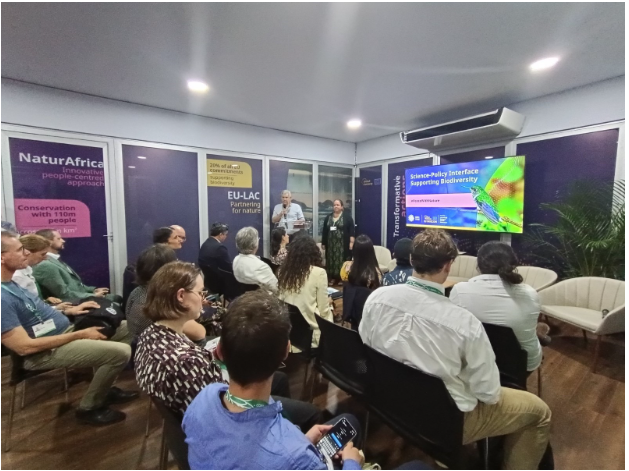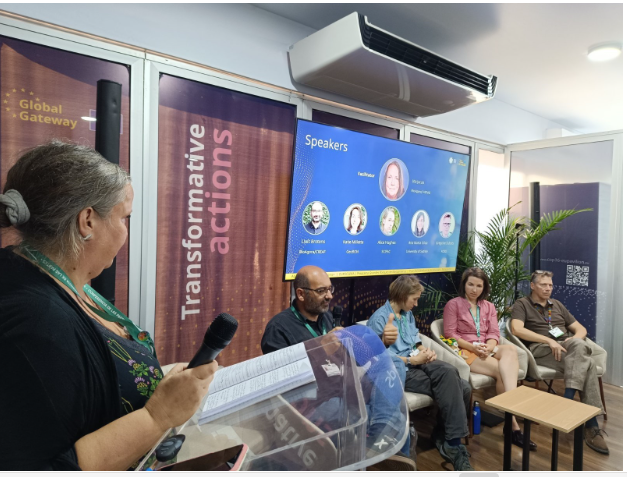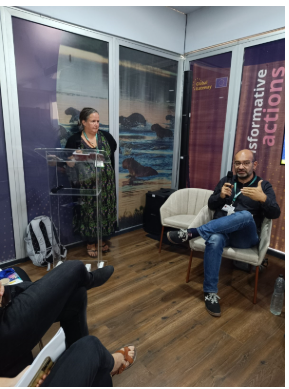From October 21 to November 1, 2024, the United Nations Biodiversity Conference (COP16) convened in Cali, Colombia, gathering stakeholders from across the globe to address critical issues in biodiversity, biosafety, and equitable nature restoration. Against this backdrop, four Horizon Europe-funded projects – CO-OP4CBD, BioAgora, RESPIN, and Biodiversa+ – jointly organized two impactful side events at the EU Pavilion, underscoring the pivotal role of the Science-Policy Interface (SPI) in advancing biodiversity and climate-related policies.
The side events spotlighted the integral role of SPIs in supporting the Kunming-Montreal Global Biodiversity Framework (KM-GBF), demonstrating how science can effectively guide policy for sustainable biodiversity conservation and restoration.
The first side event was titled “Science-Policy Interface Landscape and Its Role in KM-GBF Implementation” and it took place on 25 October between 15:30–17:00 (GMT-5). This event examined how SPIs facilitate the integration of scientific insights into policymaking, ensuring the effective implementation and monitoring of the KM-GBF. It emphasized SPIs’ contributions to evidence-based decisions that address global biodiversity challenges. BioAgora’s coordination team member Ute Jacob (HIFMB) facilitated the session on the Role of SPIs in Supporting the Implementation & Monitoring of the KM-GBF. BioAgora partner Luis Brotons (CREAF) was one of the key speakers in the session on the Role of SPIs in Supporting the Implementation & Monitoring of the KM-GBF.
The second side event titled “Biodiversity, Health, and Climate Change: Contributions of SPIs” took place on 31 October at 17:30–19:00 (GMT-5), and it focused on the interconnected issues of biodiversity, health, and climate change. Discussions centered on leveraging scientific research to inform policies that promote ecological and human well-being while mitigating climate change impacts. BioAgora’s coordination team member Ute Jacob (HIFMB) facilitated the session on Biodiversity and Health on 31 October.
The two events attracted a diverse audience of policymakers, researchers, and expert representatives, creating a vibrant platform for dialogue. Attendees engaged in meaningful discussions about advancing SPI frameworks and fostering transformative change in biodiversity governance.
These initiatives mark a significant step toward strengthening the bridge between science and policy, driving collective action to address the pressing challenges of biodiversity loss and climate change.
For more information about the organisation and panelists, visit the dedicated webpage on CO-OP4CBD’s website here.



